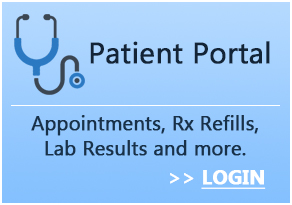
Menopause is an inevitable stage of life for women. While it marks the end of your reproductive years, it’s also a time of significant hormonal changes that can bring about numerous symptoms.
At Empire OBGYN in Buffalo, NY, we know that navigating menopause can be challenging and frustrating. We offer a wide range of women’s health services that can arm you with the right knowledge and support. With our guidance, you can manage symptoms effectively and actually enjoy (seriously!) this new chapter of your life.
What “Menopause” Means
When discussing women’s health, it’s important to understand the menopause definition, which refers to the end of a woman’s menstrual cycles and fertility.
How Menopause Starts
Contrary to popular use of the word, menopause is only official when a woman stops having menstrual periods for 12 consecutive months. It typically occurs between the ages of 45-55, but it can happen earlier or later. The years leading up to menopause are called perimenopause. This is when hormone levels begin to fluctuate, causing some notorious symptoms.
Menopause vs Perimenopause Symptoms
While both stages involve hormonal changes, the key difference lies in your menstrual cycle. Perimenopause is characterized by irregular periods, while menopause marks the complete end of menstruation.
How Menopause Affects the Body: Common Menopause Symptoms
Menopause symptoms can vary widely between individuals. Some common symptoms that you may experience in both perimenopause and menopause include:
Hot flashes: Sudden, overwhelming feelings of heat and sweating
Night sweats: Hot flashes that occur during sleep.
Menopause mood swings: Emotional ups and downs, irritability, etc.
Vaginal dryness: Can lead to discomfort during intercourse
Sleep disturbances: Difficulty falling asleep or staying asleep
Weight gain: Slower metabolism due to hormonal changes
Joint pain: Increased discomfort due to hormonal changes
Menopause Management: Taking Care of Yourself During Menopause
While menopause can be challenging, there are many steps you can take to manage the symptoms and improve your overall well-being.
Maintain a Healthy Lifestyle:
Diet: Focus on whole grains, fruits, vegetables, and lean protein.
Exercise: Regular physical activity can help manage weight, improve mood, and reduce hot flashes.
Sleep: Prioritize quality sleep by creating a relaxing bedtime routine.
Stress management: Practice relaxation techniques like yoga, meditation, or deep breathing.
Regular Check-ups: Maintain routine appointments with your OBGYN for preventive care and to monitor your overall health.
Menopause Medication Options
If lifestyle changes aren’t enough to manage your symptoms, your doctor may recommend over-the-counter remedies, hormone therapy, or other medications. These treatments can help alleviate hot flashes, night sweats, and vaginal dryness.
Over-the-Counter Remedies: Products like vaginal moisturizers and lubricants can help with vaginal dryness.
Hormone Therapy: Hormone therapy may be recommended to ease severe menopausal symptoms that don’t respond to lifestyle changes or over-the-counter treatments. It’s important to discuss the potential benefits and risks with your healthcare provider.
Empire OBGYN — Here to Help in All Phases of Womanhood
At Empire OBGYN, we are committed to supporting women through all stages of life. In addition to menopause care, we also offer a range of services including:
- Birth control consultations
- Prenatal and postnatal care
- Cancer screenings
- Breast Health exams and screenings
- And more
Our highly experienced and compassionate healthcare providers can offer guidance, treatment options, and personalized care to help you address any concerns you have during any season of life — including menopause and beyond.
Remember, menopause is a natural process and you’re not alone. With the right approach and support, you can embrace this new chapter in your life with confidence and vitality.
Call us at (716) 877-1221 to make an appointment with one of our providers.





